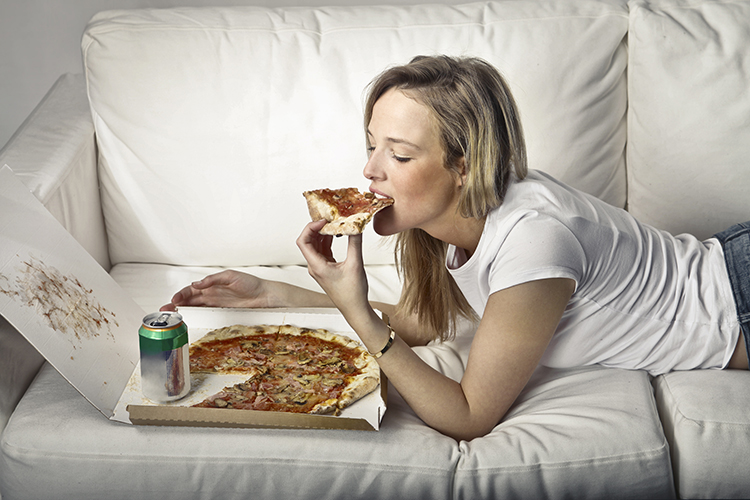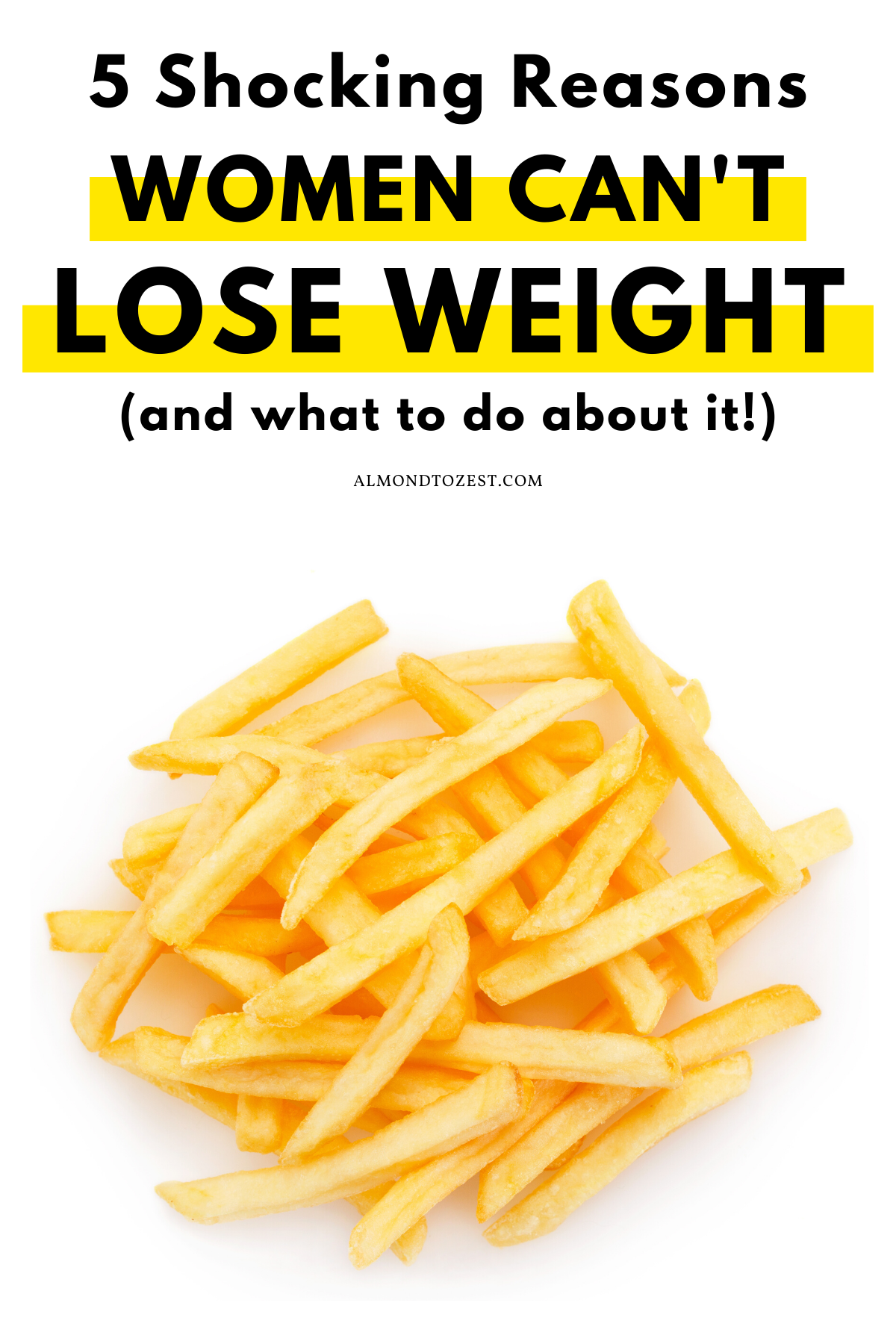 “I’ll eat less”. “I’m going to drop 10 pounds in a month!” “I’m going carb-free”.
“I’ll eat less”. “I’m going to drop 10 pounds in a month!” “I’m going carb-free”.
There are numerous things that you can write to make that so-called ‘promise’ to yourself.
Yes, come every New Year, desperate men and women around the world make those promises to themselves “I WILL lose weight!” “I WILL go on a diet!”
This is all well and good, but believe it or not, there are numerous problems when it comes to dieting.
And when I say, “dieting”, I’m referring to any kind of restriction (cleanses also fall into this category) – they can all be freaking problematic at times.
I get how people can be blinded by the allure of the dieting world.
All you have to do is do a quick Google search, and you’ll be bombarded with a plethora of programs and diets with some impressive before and after pictures.
However, it’s important to note that the weight loss industry is one of the biggest industries out there, and with a worth of around $70 billion USD (Roepe, L. 2018), they can afford the very best and most professional marketers.
As humans, we have so many intrinsic negative biases.
We tell ourselves every day that we aren’t good enough or we’re too fat.
The dieting and weight loss industries will then hook us when we’re feeling desperately low about ourselves, and bam, just like that they’re profiting from our self worth, or should I say lack of?
Eventually, that message becomes drilled into us and internalized.
We too then fall into that trap, thinking that we aren’t good enough and we have many things to fix about ourselves.
I really get why people go on these extreme diets.
They feel that diets have rules and structure, and this to some (believe it or not), is very appealing.
But as most diets are so restrictive, they aren’t really sustainable, which is why 95% of people fail with dieting, or perhaps we should say 95% of diets fail people.
Here are the main reasons as to why only a mere 5% of the dieting population successfully achieve their health or body goals when following a diet.
1. Most Diets For Most People Aren’t Sustainable

Note the word ‘most’.
Of course I’m not advocating that all diets are absolutely useless and that there’s not a diet out there that works, because that’d be quite arrogant of me to say, and actually, there are a few ways of eating and dieting that I wholeheartedly believe work (more about these soon).
There are of course some people that find a diet that suits his or her lifestyle and they can, over time, make the necessary adjustments.
But unfortunately, the statistics aren’t that favorable when it comes to diet success.
According to the American Journal of Clinical Nutrition, only 20% of heavily overweight dieters are successful at losing their weight and maintaining it up to a year (Wing and Phelan, 2005).
When you think about this in terms of the people that really need to lose weight for the sake of their health, it’s slightly shocking.
What about the other 80%? Well, they may lose weight in the interim, but due to their commitments, lifestyle, or other issues, they’ll eventually fall off the wagon, with the majority of them putting on even more weight after their period of said dieting.
In fact, it’s believed that 95% of people that have lost weight through dieting will gain even more than what they first lost after six years of initially starting the diet (Mann et al., 2007).
I’m not going to lie…when you do start any diet, you will most likely lose some weight, unless you have some kind of medical issue, such as a thyroid problem.
But because dieting is so restrictive it often results in that vicious yo-yo dieting cycle that you’re most likely somewhat familiar with… hands up if you can honestly say that you didn’t spend the majority of your teenage to adult years on some kind of diet?
Very few I imagine.
It’s even more shocking that there are some studies that claim that diets actually cause you to gain weight (Mann et al., 2007).
God, in all honesty, I really think that things marketed by the diet industry should come with warning labels just like cigarettes.
Would you really buy into a diet that said “Warning: dieting may cause weight gain in the long term!”
No!? I didn’t think so!
2. Dieting Causes Bingeing

I know this from my own experience.
Back in my younger more athletic days when I had to cut weight and get into shape quickly, I’d diet.
I’d whip myself into tiptop condition for the event or the season, and then as soon as it was all over, I’d gorge on whatever I’d been eliminating from my diet.
As a lover of everything and anything Italian, pizza and pasta were my not-so-dirty secrets.
Yes, that’s right – me, a professional sportsperson in my prime, throwing back an entire family-sized pepperoni pizza and all the trimmings!
There’s a common misconception that bingeing is only for emotional eaters.
This isn’t the case – it’s actually your body’s biological reaction to the deprivation it’s been suffering from.
When you deprive your body of certain foods, it’ll trigger a chemical reaction and your brain will secrete neuropeptide Y (NYP), which makes you think even more about food since you’re depleting your brain from its main source of fuel.
So in short, NYP increases your desire to eat (Smitka et al., 2011), with a preference for carbs, hence my need to eat pizza and pasta after making weight for my events.
Therefore, sometimes bingeing has nothing to do with your lack of control; instead, it’s your body’s survival mechanism that helps keep you alive.
I’m not saying there’s no such thing as an ‘emotional eater’ because there are many people out there that turn to food for comfort, but this is not what this book is about.
The moral of this is that certain diets result in you not getting enough energy, which in turn causes you to have those guilty binge sessions.
3. Diets Make You Obsessive

This is something everyone that’s ever been on a diet can relate to.
Not only can a diet bring about drastic changes in mood, irritability, fatigue, and an obvious lack of motivation, they also make you obsess.
My wife is a great example of this.
Before we found keto (more about this later), she’d experimented with a plethora of diets.
Each time she found a new diet, she’d stay up into the middle of the night studying online recipes and cookbooks.
If anyone were to check her Internet history, it would soon reveal that the Food Network and Pinterest were ever-present in her online browsing behavior.
She’d even read somewhere that chewing gum would help alleviate her cravings and on bad days, shed’ go through at least 20 packs of gum in a period of 24 hours.
Little did she know that the chewing gum she’d become so accustomed to was full of sugar.
I’d watch her eat curiously.
It was like a ritual.
She’d hold and savor the food in her mouth for a longer-than-normal period of time before she finally swallowed it... don’t even get me started on the way she’d often obsess over the weird and wonderful plate combinations she’d come up with.
Her friends didn’t miss a beat either.
They also noticed, but here’s the thing – my wife’s obsessiveness wasn’t her fault – it was all related to her body’s natural reaction to the restriction.
4. Diets Cause Cravings

You may have experienced a diet program that’s stated you’re addicted to X, Y, and Z, and to be honest, this is highly unlikely, as there’s very little scientific evidence to suggest that food addiction is really a thing.
However, a diet will increase your desire for rewards or pleasure.
If you restrict something, let’s say ice cream, for instance, your brain automatically registers that this food is even more pleasurable than it was when you weren’t restricting it.
Us humans are weird like that; we’re all driven by unmet needs or things we can’t have.
In simpler terms, we can compare it to a small kid in a room full of toys.
You tell him or her that they can play with any toy they want apart from the red fire engine.
There’s no guessing which toy they’re going to want to play with, and the same goes for food.
Let’s say you tell yourself that a certain food is ‘off-limits’ or ‘bad’; that would be the food that you end up thinking about and craving more than ever.
Just like that bad boy at high school you were deeply and madly in love with – this banned food creates a very clear allure and appeal... the story of Adam and Eve and the forbidden apple in the Garden of Eden is a fine example of this.
5. Dieting Is Stressful

A lot of diets cause stress.
They make you think about food in an obsessive way, which triggers stress hormones. These hormones then lead the body to slow down and store more fat.
Talk about bittersweet.
Other research into low-calorie dieting has found that when you drastically cut your calories, it doesn’t lead to long-term weight loss, instead, it increases cortisol production and chronic psychological stress, two things that ironically lead to weight gain (Tomiyama et al., 2010).






Sher Azam says
Good Work,, Keep it up.